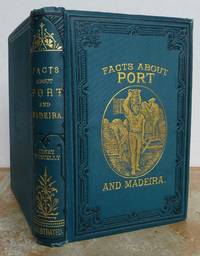
In the Senate of the United States reported February 18, 1858 -- VIEWS OF THE MINORITY On the Constitution of Kansas adopted by the Convention which met at Lecompton on Monday, the 4th of September, 1857
by Collamer, Jacob ; (from the Committee on Territories)
- Used
- very good
- Signed
- first
- Condition
- Very Good
- Seller
-
Washington, District of Columbia, United States
Payment Methods Accepted
About This Item
Washington: Congressional Globe Office. Very Good. 1858. First Edition. Pamphlet. 7, (1) pages; Very good condition in original self wrappers; pages unopened. Original owner's name signed in pencil on front wrapper -- "J. Whitcomb". Text printed in two columns. OCLC 83113204 (listing mistakenly labels as printed in 1857). This report presents the Views of the Minority of the Committee on Territories on the Kansas Question, particularly their opinion on the Lecompton Constitution which would admit Kansas as a slave-holding state. The report presents the historical context of the Kansas Question along with the evidence undermining the validity of the Lecompton Constitution, based on the voter fraud afflicting its initial ratification in late 1857 and its clear defeat by more than 10,000 votes in the second referendum held in January 1858. Jacob Collamer (1791 – 1865) was an American politician from Vermont, who served in the U.S. House of Representatives, as Postmaster General in the cabinet of President Zachary Taylor, and as a U.S. Senator (1855-1865) . Collamer was elected to the Senate as a Republican in 1855, shortly after the formation of the new party. He became a respected voice against slavery and a prominent supporter of the Lincoln administration during the American Civil War. An advocate of more stringent postwar Reconstruction measures than those that were favored by Lincoln and his successor, Andrew Johnson, Collamer advocated congressional control of the Reconstruction process. KANSAS QUESTION - Kansas Territory was officially established in 1854 with the passage of the Kansas-Nebraska Act. The act provided that each territory would decide the issue through the constitution under which it would enter the union. Kansas Territory, because of its proximity to Missouri, a slave state, became a political and literal battleground for pro- and anti-slavery forces. Contested elections, armed conflict, and recruitment of and support for settlers from both the North and the South contributed to the label of “Bleeding Kansas.” The battle for Kansas was waged also in the halls of Congress, the national press, and anywhere people gathered to discuss or debate the issues of the day. All of this increased the tensions between the North and the South, which eventually led to the outbreak of the Civil War. The Kansas conflict further polarized the nation and weakened the American two-party political system, which was already unravelling under the pressures of sectionalism and westward expansion. The Democratic Party of Andrew Jackson, with its pro-Southern, state rights bent, was well entrenched, but the Whig Party of Henry Clay and Daniel Webster lost its sway during the late 1840s and early 1850s. Dissidents from both parties ultimately organized as the Free Soil Party in 1848, and the new party united around the Wilmot Proviso (a ban on slavery in the territory acquired as a result of the Mexican War). Although their candidate, former Democratic president Martin Van Buren, ran a distant third, the introduction of a significant third party was a harbinger of political things to come. In less than six years, despite the efforts of Clay, Webster, and others who fashioned the Compromise of 1850, the two party system reached its breaking point with the passage of the Kansas-Nebraska Act. During the months surrounding the 1856 election, several incidents in Kansas Territory and in Washington, D.C. drastically altered the national discourse. Civil war broke out in Kansas with the sacking of Lawrence and the subsequent Pottawatomie Massacre of May 1856; while in Congress, Massachusetts Senator Charles Sumner denounced the slave power and its “rape of Kansas” in his famous “Crime Against Kansas” speech. Throughout 1856 much congressional time and attention was given to the Kansas Question, especially as it pertained to the proposed free-state Topeka Constitution. Although the violence in Kansas subsided, sectional strife had risen to a new level. Immediately after the inauguration of President James Buchanan, the U.S. Supreme Court entered the fray. Chief Justice Roger B. Taney rendered the decision of the high court in Dred Scott v Sanford, which in effect held that slaves were not citizens of the U.S., residency in a “free” state did not alter their status, and that Congress had no authority to ban slavery in the territories. The decision made the Missouri Comprise unconstitutional. Drawing on the dissenting opinions of two Northern jurists, opposition to the decision was vehement. In 1857 the Lecompton Constitutional Convention eventually resulted in the ratification of a proslave constitution for Kansas, which badly split the national Democratic Party. Subsequently, anti-slavery Kansans were in the majority by January 1858 when they defeated the Lecompton Constitution in a second referendum. Despite this fact, President Buchanan submitted the Lecompton document to Congress and recommended that Kansas be admitted as a slave state. Many Northern Democrats, including the influential Senator Douglas, who recognized the violation of the principal of popular sovereignty in the Lecompton action, split with their party's president on this issue. Subsequently, the Senate voted for admission and the House for resubmission; a compromise—the English bill, providing for an up or down vote by territorial residents on the constitution passed both houses on April 30, and Kansas voters overwhelmingly rejected the Lecompton Constitution on August 2, 1858. Technically, because of Dred Scott, slavery remained legal in the territory of Kansas until admission; in reality, however, the free-state victory in the fall 1857 legislative elections and the defeat of the pro-slave constitution in 1858 settled the issue for Kansas. As Senator Douglas had indicated during one of his debates with Abraham Lincoln, slavery could not survive, no matter what the courts might say, in a territory where the majority was hostile to its continued existence. (Excerpted from "Territorial Kansas Online") .
Reviews
(Log in or Create an Account first!)
Details
- Bookseller
- Antiquarian Book Shop
(US)
- Bookseller's Inventory #
- 42957
- Title
- In the Senate of the United States reported February 18, 1858 -- VIEWS OF THE MINORITY On the Constitution of Kansas adopted by the Convention which met at Lecompton on Monday, the 4th of September, 1857
- Author
- Collamer, Jacob ; (from the Committee on Territories)
- Format/Binding
- Pamphlet
- Book Condition
- Used - Very Good
- Edition
- First Edition
- Publisher
- Congressional Globe Office
- Place of Publication
- Washington
- Date Published
- 1858
- Size
- 8vo.
- Weight
- 0.00 lbs
- Keywords
- Slavery, Anti-Slavery, Abolitionism, The Kansas Question, The Lecompton Constitution, President James Buchanan, Senator Jacob Collamer, Committee on Territories
- Bookseller catalogs
- Americana and American History; 19th Century; Political Science; African American Studies;
Terms of Sale
Antiquarian Book Shop
We are long-time professional booksellers and value our customers. We make every attempt to describe our inventory with care and package items carefully for shipping. Discretionary returns will be refunded the price of the book, exclusive of shipping expenses. We make every reasonable effort to make sure customers have a good experience purchasing from us.
About the Seller
Antiquarian Book Shop
Biblio member since 2017
Washington, District of Columbia
About Antiquarian Book Shop
At The Antiquarian Book Shop, located in Georgetown - an historic neighborhood of Washington, D.C. we have been buying, selling & appraising rare, interesting and scholarly books in Georgetown for more than 30 years. Over those many years we have taken great pleasure from satisfying our customers' eclectic literary requirements in the shop and hope to continue in that tradition now that we have moved our operation on-line.Currently, our catalogued inventory includes about 4,000 books from the sixteenth century through the twentieth century in a variety of subject areas. Our stock comprises antiquarian books, collectible books and scholarly books, as well as a selection of antique prints and ephemera.The books listed here represent only a small portion of our total inventory. We are in the process of cataloguing the extensive holdings in our warehouse (15,000+ books) and hope to flesh out these pages over the months to come. Our new format allows us to expand & update our listings frequently. We have included images of many items listed to better convey their quality and condition.
Glossary
Some terminology that may be used in this description includes:
- New
- A new book is a book previously not circulated to a buyer. Although a new book is typically free of any faults or defects, "new"...
- First Edition
- In book collecting, the first edition is the earliest published form of a book. A book may have more than one first edition in...
- Unopened
- A state in which all or some of the pages of a book have not been separated from the adjacent pages, caused by a traditional...

